GEN III HEMI® 1969 CHARGER!
– BUILT WITH MODERN HEMI® ENGINE POWER
– ROLLS ON 19-INCH HRE TEN-SPOKE WHEELS
– TWO-TONE HOUSE OF KOLOR PEARL PAINT
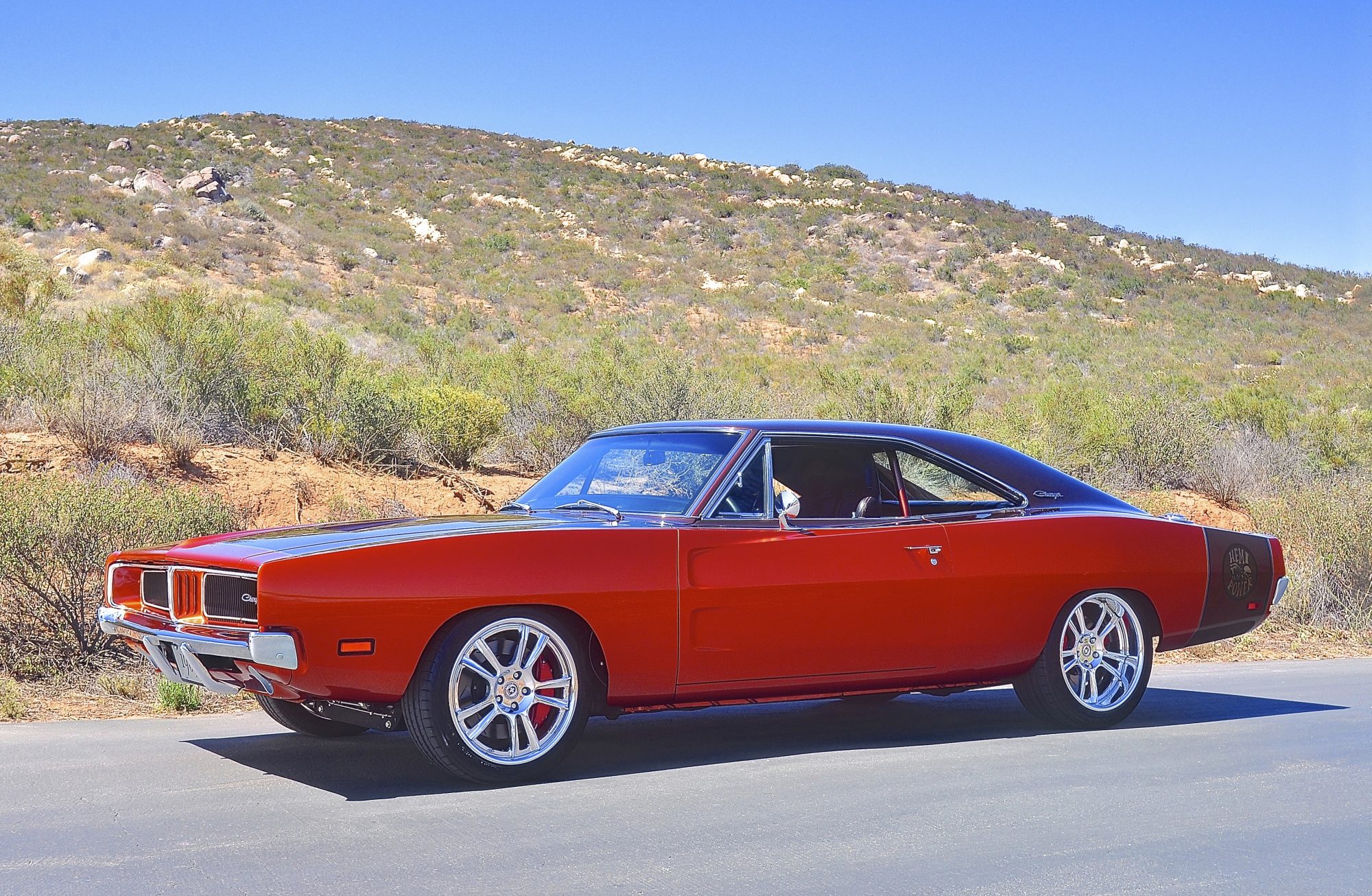
The Dodge Charger is an iconic American Muscle Car and in particular the 2nd-generation 1968-70 versions are long-time favorite body shapes with enthusiasts. Featuring a beautifully sculptured “coke-bottle” shape, this Mopar® “B-body” intermediate ran on the same 117-inch wheelbase as the less-flashy Coronet line; however, the lines of the body of the Charger gave it a look that was truly exotic in appearance.
POPULAR WITH THE MASSES
Chargers were runaway sales successes in those early years and all the credit has to go the the guy who penned the car, a young gun designer named Richard Tighstin, who worked for Dodge’s design boss Bill Brownlie. “I wanted the ultimate road and track machine,” he recalled in a 1994 interview, and the Tighstin design nailed it, what he wanted the Charger to look like. Up front, the grille featured hide-a-way headlights and a hood with a reverse dual air vent theme, while the rear of the Charger featured a tunneled roof line with recessed rear back glass and a built-in rear lip spoiler on the decklid.
Then there was the flip-top gas filler that had a certain NASCAR theme to it. All the body panels on the Charger were different from the Coronet and in general, it looked like something for the race track as compared to the regular Coronet as a result of the fabulous styling that was built into the overall Charger shape. Not too many cars have that sort of magic, and the second-generation Charger had it!
The pictured 1969 Charger started out life as a California 318 car and finding the donor car for the project was easy enough, a nice, clean vehicle made a great starting point.
426 CUBIC INCHES OF MODERN HEMI ENGINE POWER!
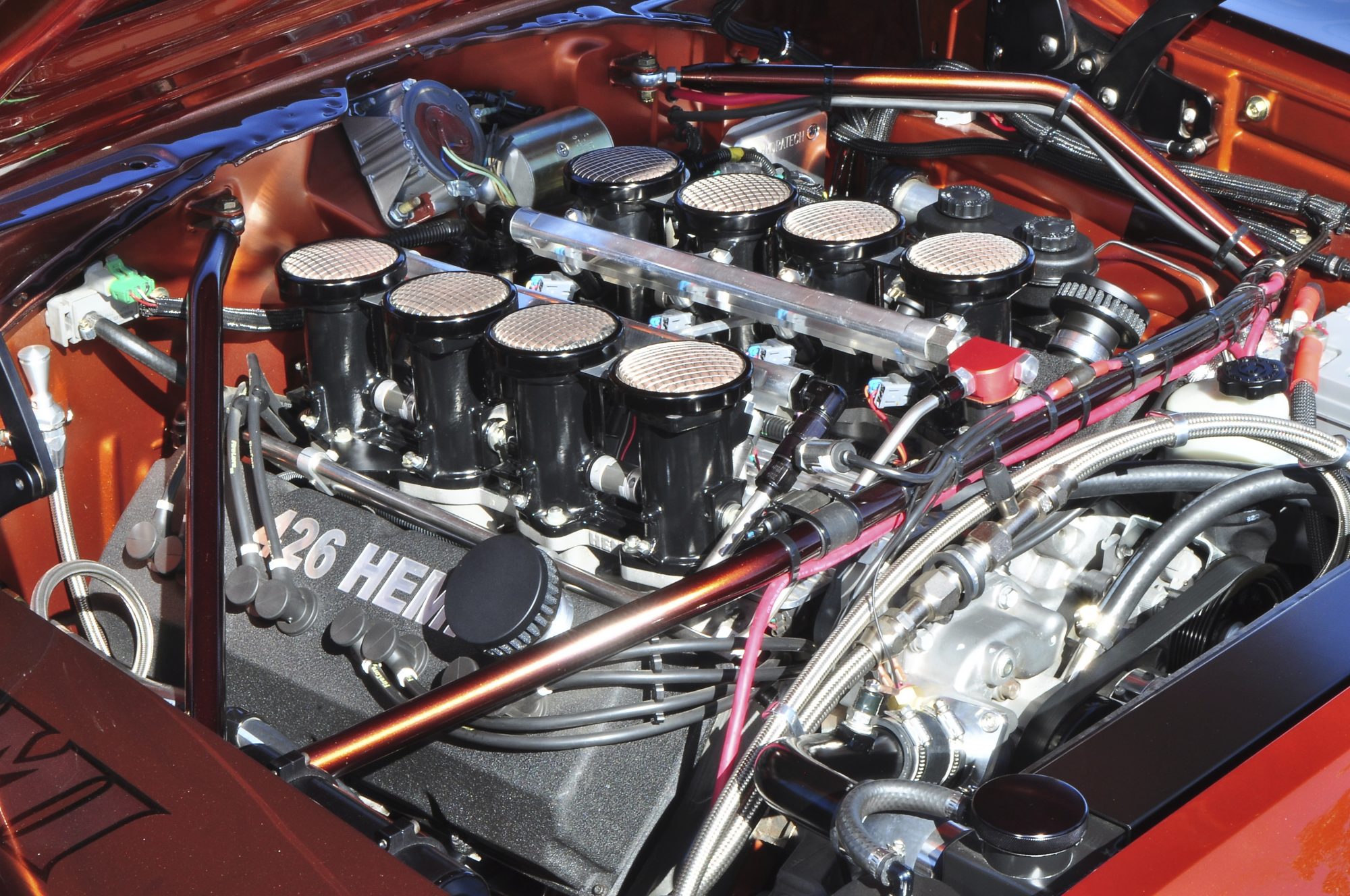
The thought process on the engine for the project was to build up a “426 HEMI” like what was available in the year 1969; however, the decision was made to use the modernized Gen III HEMI 6.1L engine and have it bored and stroked, enlarged to obtain the desired 426-cubic-inch displacement via a 4.090-inch bore, coupled with a 4.050-inch stroke.
Rather than run carburetors, the move to fuel injection was made, via a TWM Induction 8 Stack Fuel Injection system (www.racetep.com) equipped with Cook Enterprises custom air filters. The system is controlled and calibrated by FAST XFI and VIM computers. The exhaust was handled by a set of Kooks headers and custom Steve Hansen-constructed 3-inch diameter exhaust system.
DYNO TESTED ENGINE
The engine was sorted out on a chassis dynomometer and peak power output was confirmed at 625 hp at 7,000 rpm, with 500 lbs.-ft. maximum torque coming in at 5,400 rpm. A race-prepped 4L70E automatic was chosen and can be operated with either fully manual shifting or standard 4-speed auto shifting, with “A” and “B” button on the dash for shifting style selection. HEMI engine-powered cars back in the day came with the big beefy Dana 60™ rear axle (with 9.75-inch ring gear) and because this car was cranking out mega horsepower, the decision was made to step up to this heavy-duty differential, and a set of 3.91:1 gears were selected.
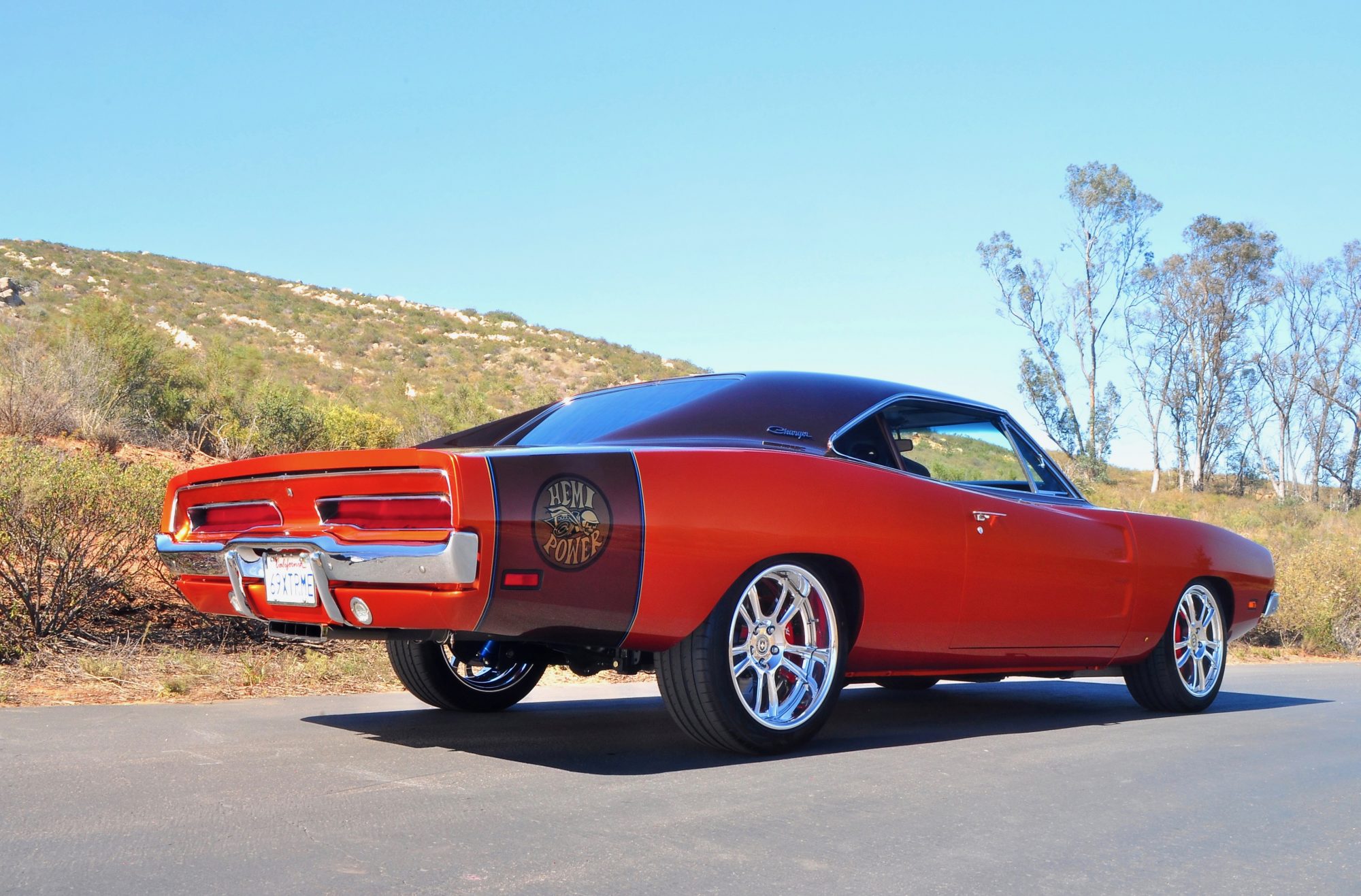
BIG ROLLERS
Rolling stock consists of HRE 3-piece 10-spoke 19-inch diameter wheels (9-inch front, 10-inch rear) wrapped with Yokohama Advan Sport rubber, sized 255/40ZR19 front, 275/40ZR19 rear.
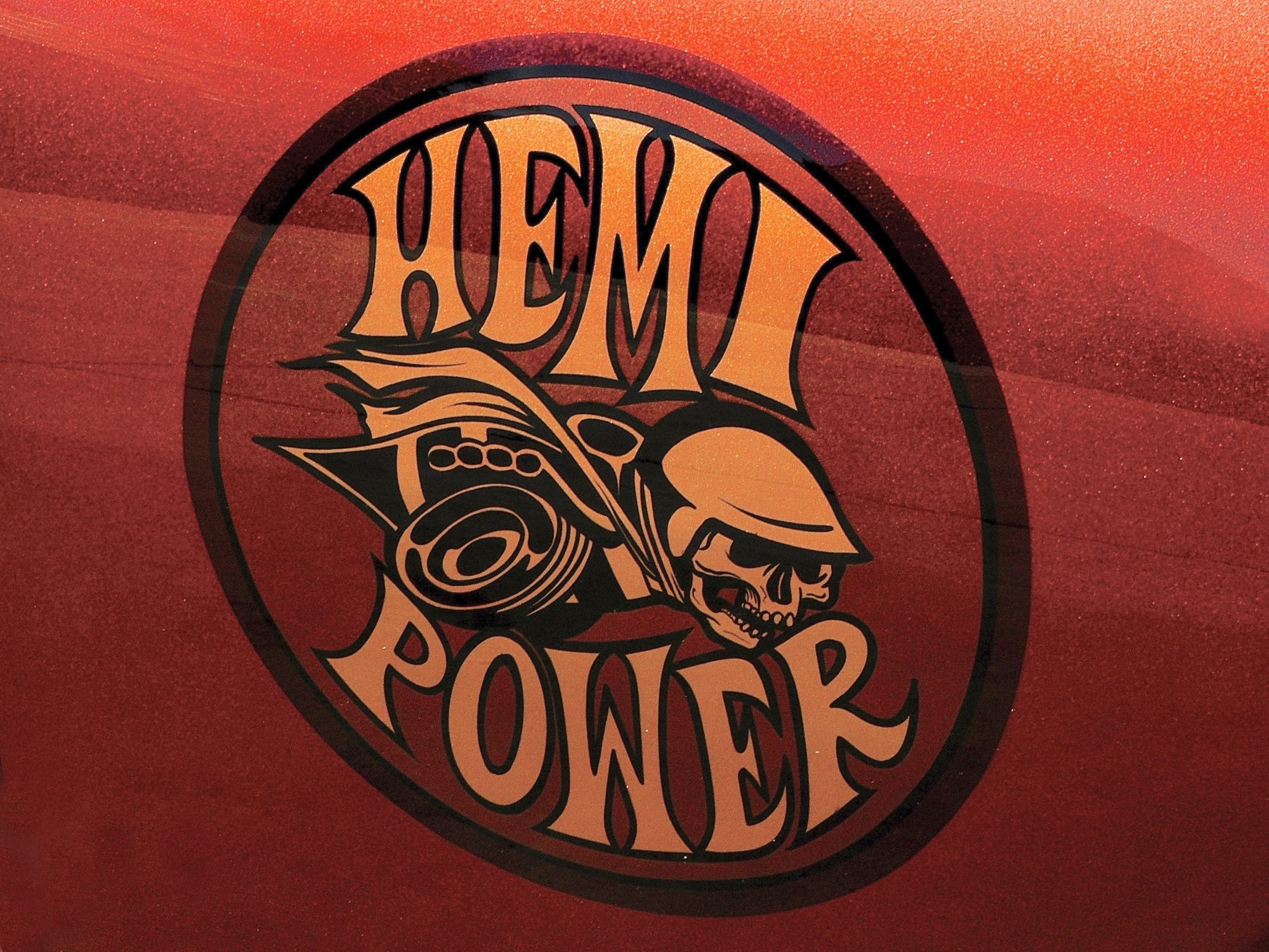
PAINT AND GRAPHICS
The paint choice was House of Kolor and the selected hues were Cocoa Pearl with Root Beer Pearl, with the pin stripe done on True Blue color. The paint has a two-tone look to it and the design on the rear quarter panels has a “bumble bee” theme that has been modified to a much wider stripe, actually more in tune to the winged “Daytona” Charger also from 1969. Playing on the “Scat Pack” theme that was current in 1969, a “HEMI Power” logo that was designed to capture the essence of the original but with a “twist” of humor.
KEEP THE PEACE
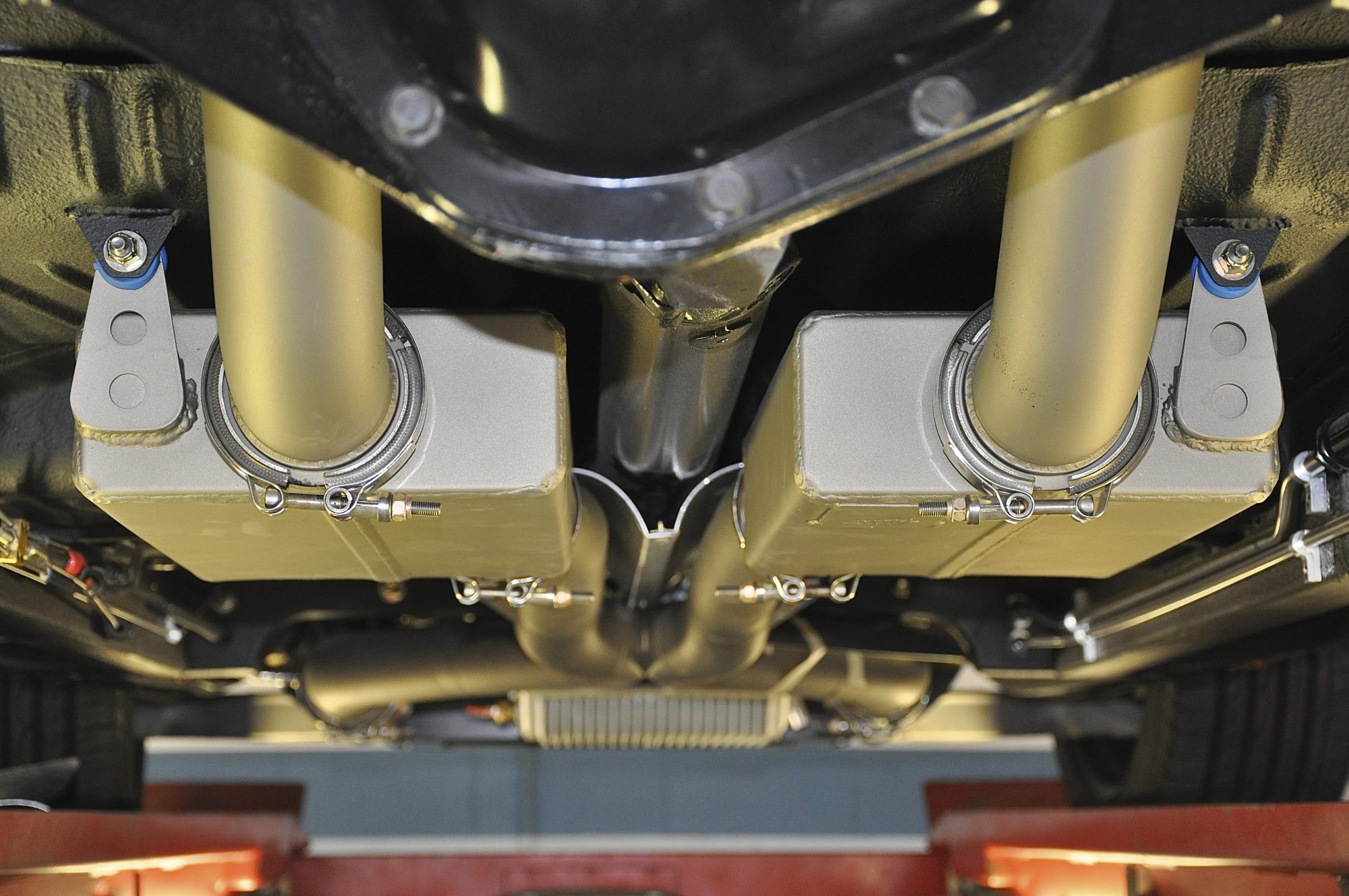
The craftsmanship of the under chassis in general is impressive, and the exhaust system is ultra-detailed. Keeping the sounds of the healthy HEMI engine under control comes from Spin Tech mufflers, which are mounted tightly to the driveshaft and as high as possible for maximum clearance.
The front of this “resto-mod” Charger looks innocent enough, the wide footprint of the jumbo rubber is the only real clue from this vantage point that there’s something very special lurking inside and underneath of the car, as it’s far from a regular ’69 Charger with a custom paint job. This classic ’69 Dodge Charger wasn’t built to be just a “show car”, the car was built to be driven, tons of usable power and it handles like a slot car!
Author: James Maxwell
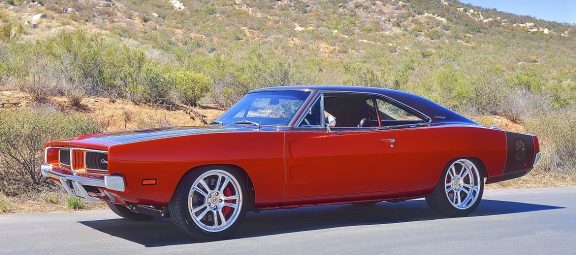
0 Comments